Radar | Vol. 12
DS.WRITER:
Vasilis Xifaras
Liquid Glacial – Zaha Hadid
Η Zaha Hadid άφησε -και συνεχίζει να αφήνει μέσω των συνεργατών της- το στίγμα της στην αρχιτεκτονική, με ρευστές μορφές που δοκιμάζουν τα όρια πολλών υλικών, όπως το γυαλί. Το studio της όμως, εκτός από την κλίμακα του κτιρίου, πειραματίζεται και στην κλίμακα του αντικειμένου. Έτσι, το 2015, λάνσαρε μια σειρά αντικειμένων με τίτλο «Liquid Glacial», που ήρθαν να προστεθούν στα ήδη υπάρχοντα τραπέζια που είχαν εκτεθεί το 2012 στην David Gill Gallery. Τα καθίσματα, τα τραπέζια και τα δοχεία από plexiglass και ακρυλικό μοιάζουν με νερό που ρέει, καθώς ο κατακόρυφος και ο οριζόντιος άξονας μοιάζουν να επικαλύπτουν ο ένας τον άλλον.
Concept by: Zaha Hadid
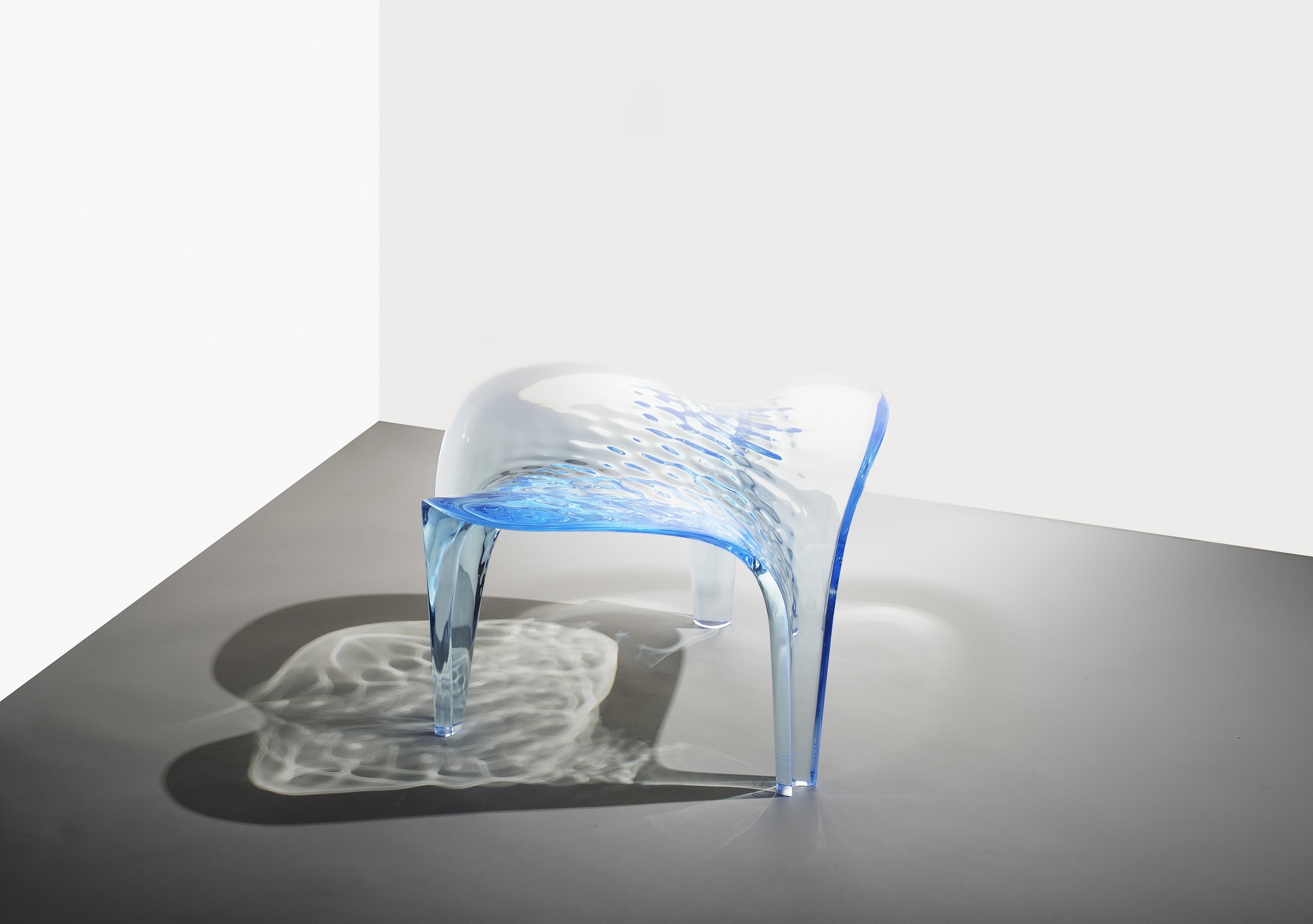
Photo by: Martin Slivka
I–Beam Collection – Jean-Marie Massaud για το Glas Italia
Ο Jean-Marie Massaud, μέσω του ομώνυμου studio του, δημιουργεί έπιπλα και μικρά αντικείμενα, καθώς πειραματίζεται με το φως και τη διαφάνεια χρησιμοποιώντας ελαφριούς και λεπτούς όγκους, σε μια διαδικασία σχεδιασμού που απορρίπτει τη μόδα και τις τάσεις. Η συλλογή του «I-Beam» απαρτίζεται από καθίσματα και χαμηλά τραπέζια, τα οποία προκύπτουν από την ένωση τριών γυάλινων θολών επιφανειών, με το αποτέλεσμα να παραπέμπει σε μια μεγάλη δοκό. Αν και η ένωση είναι μικρή και γραμμική, η τεχνική συγκόλλησης που έχει χρησιμοποιηθεί επιτρέπει στις γυάλινες επιφάνειες να φέρουν βάρος.
Concept by: Jean-Marie Massaud
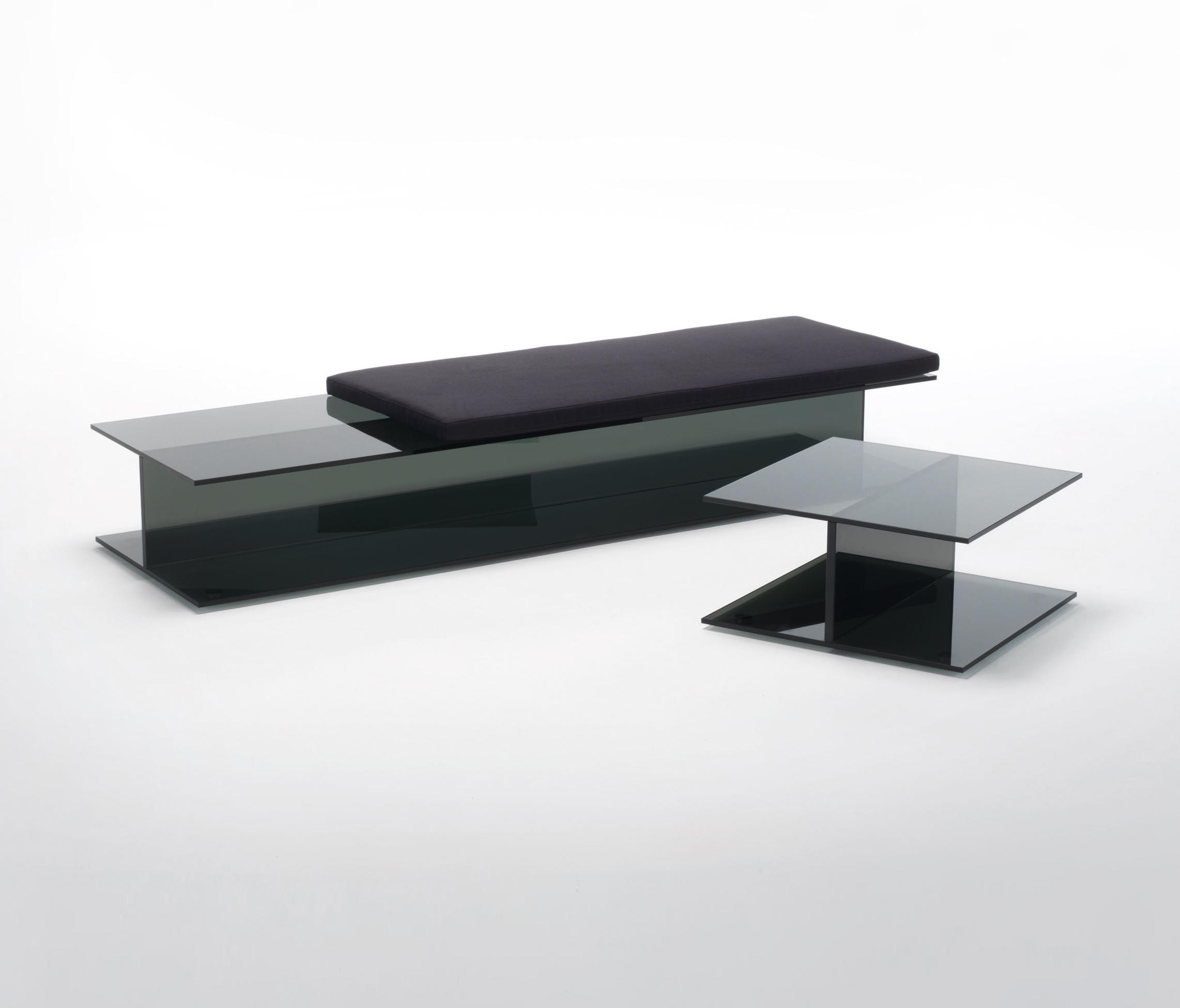
Photo by: Glas Italia
Aalto Vase – Alvar Aalto & Aino Aalto
Ο «πατέρας» της φινλανδικής (και όχι μόνο) μοντέρνας αρχιτεκτονικής, Alvar Aalto, και η σύζυγός του Aino Maria Marsio - Aalto, αρχιτέκτονας και σχεδιάστρια υφασμάτων, γυάλινων αντικειμένων και φωτιστικών, δημιούργησαν τη συλλογή «Alvar Aalto», έντονα επηρεασμένοι από τη φινλανδική ιστορία και παράδοση. Η μορφή των γυάλινων ποτηριών, βάζων και δοχείων είναι εμπνευσμένη από τα φορέματα των Σαάμι, και παρουσιάστηκε για πρώτη φορά το 1936 από το εργοστάσιο φυσητού γυαλιού Iittala, το οποίο συνεχίζει να παράγει αυτά τα γυάλινα αντικείμενα, ενώ μέσα στο 2023 θα λανσάρει ξανά κάποια πρωτότυπα σχέδια με αφορμή τη συμπλήρωση 125 χρόνων από τη γέννηση του Aalto. Το «Aalto Vase», συγκεκριμένα, είναι γνωστό και ως «Savoy Vase», αφού σχεδιάστηκε ειδικά για το εστιατόριο «Savoy». Η ασυμμετρία αυτού του αντικειμένου αντιπροσωπεύει το πρωτότυπο, ειλικρινές και αισθητικά εντυπωσιακό φινλανδικό design.
Concept by: Alvar Aalto & Aino Aalto
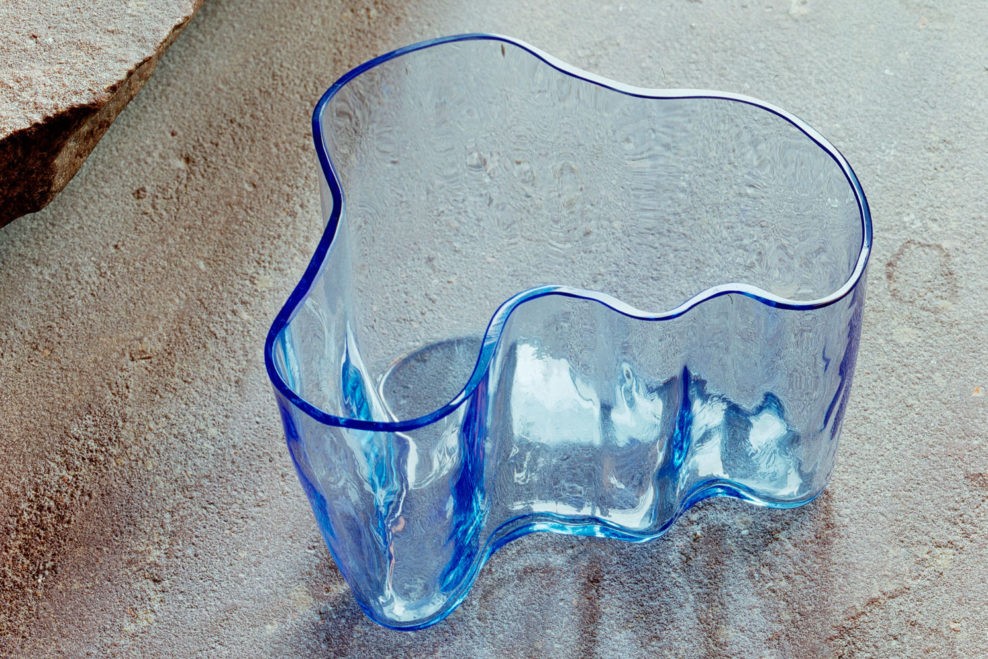
Photo by: Marija Holma, Alvar Aalto Museum
Qaammat Pavilion – Konstantin Ikonomidis
Ο Σουηδός Konstantin Ikonomidis είναι αρχιτέκτονας, απόφοιτος της Royal Danish Academy of Fine Arts και δραστηριοποιείται σε κλίματα όπου επικρατούν ακραίες συνθήκες, ενώ παράλληλα πειραματίζεται με τις ιδιότητες των υλικών και συνεργάζεται με τεχνίτες από διαφορετικούς κλάδους. Το «Qaammat Pavilion» βρίσκεται στο Sarfannguit, στα δυτικά της Γροιλανδίας, και ανεγέρθηκε με αφορμή την ανακήρυξη του φυσικού αυτού περιβάλλοντος ως μνημείου της UNESCO. Το site-specific μνημείο αναδεικνύει την άυλη πολιτιστική κληρονομιά των Inuit αλλά και τον παραδοσιακό τρόπο κατασκευής. Οι δύο καμπύλες επιφάνειες που απαρτίζουν το μνημείο δομούνται από γυάλινα τούβλα κατασκευασμένα στη Βενετία, και συμβολίζουν τα δύο φιορδ που «συναντιούνται» σε αυτό τον τόπο μοναδικής ομορφιάς.
Concept by: Konstantin Ikonomidis
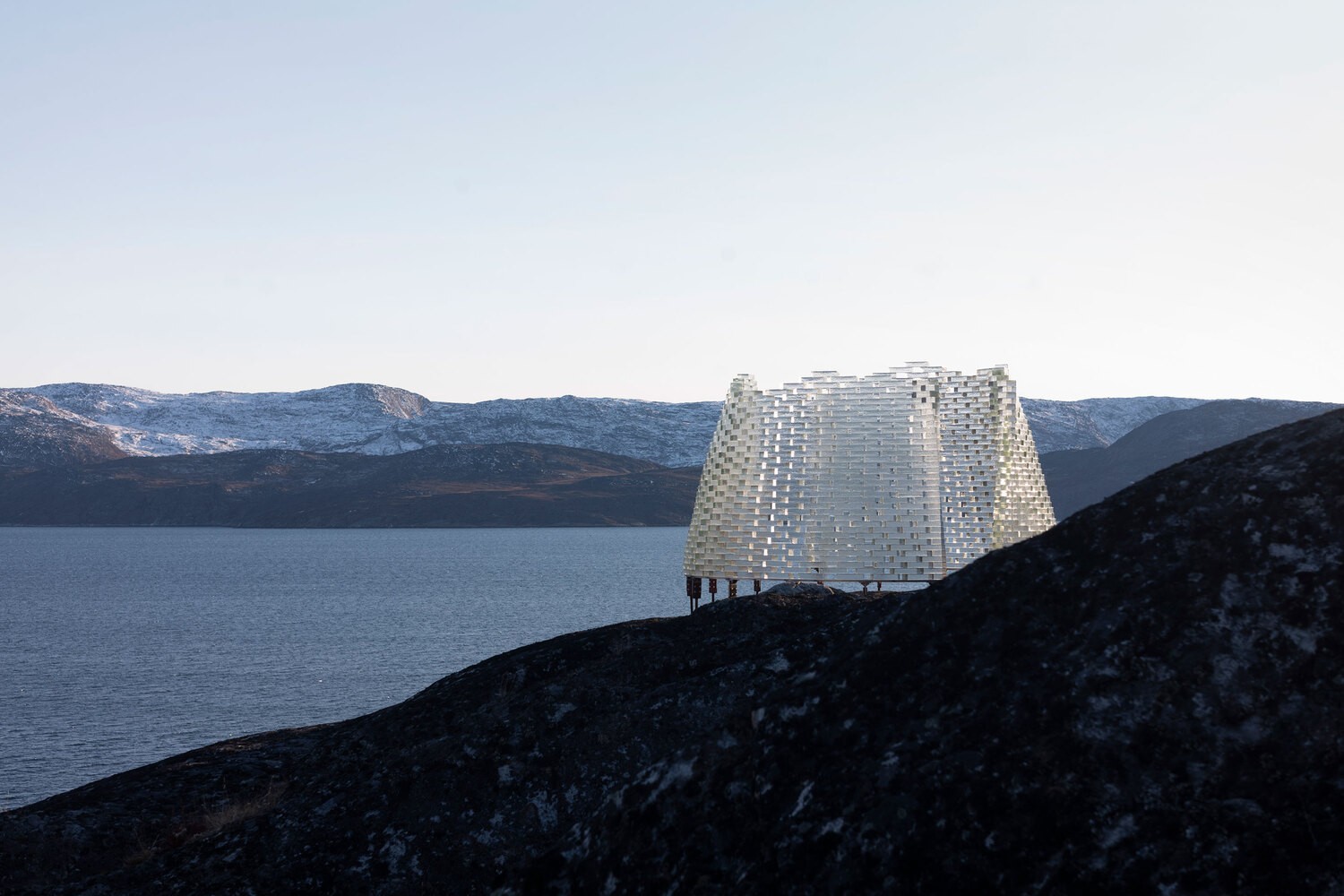
Photo by: Julien Lanoo
Ghost Chair – Cini Boeri για το Fiam
Η αρχιτέκτονας και σχεδιάστρια εσωτερικών χώρων και αντικειμένων Cini Boeri μεγάλωσε και σπούδασε στο Μιλάνο, και άφησε ιστορία για το επαναστατικό design της που χαρακτηρίζεται από οικονομία υλικού, αλλά και για το πόσα πολλά κατάφερε ως γυναίκα στα μέσα του 20ού αιώνα. Το διάσημό της κάθισμα «Ghost Chair» χρονολογείται στο 1987 και αποτελείται από μια ενιαία επιφάνεια γυαλιού πάχους 12 χιλιοστών. Πρόκειται για ένα διαφανές γλυπτό, έναν μονολιθικό όγκο που συνδυάζει την υψηλή αισθητική με τα απλά γεωμετρικά σχήματα, τις καμπύλες και τη λειτουργικότητα. Αυτά, άλλωστε, ήταν τα χαρακτηριστικά του διαχρονικού design της Cini Boeri που απεβίωσε το 2020.
Concept by: Cini Boeri
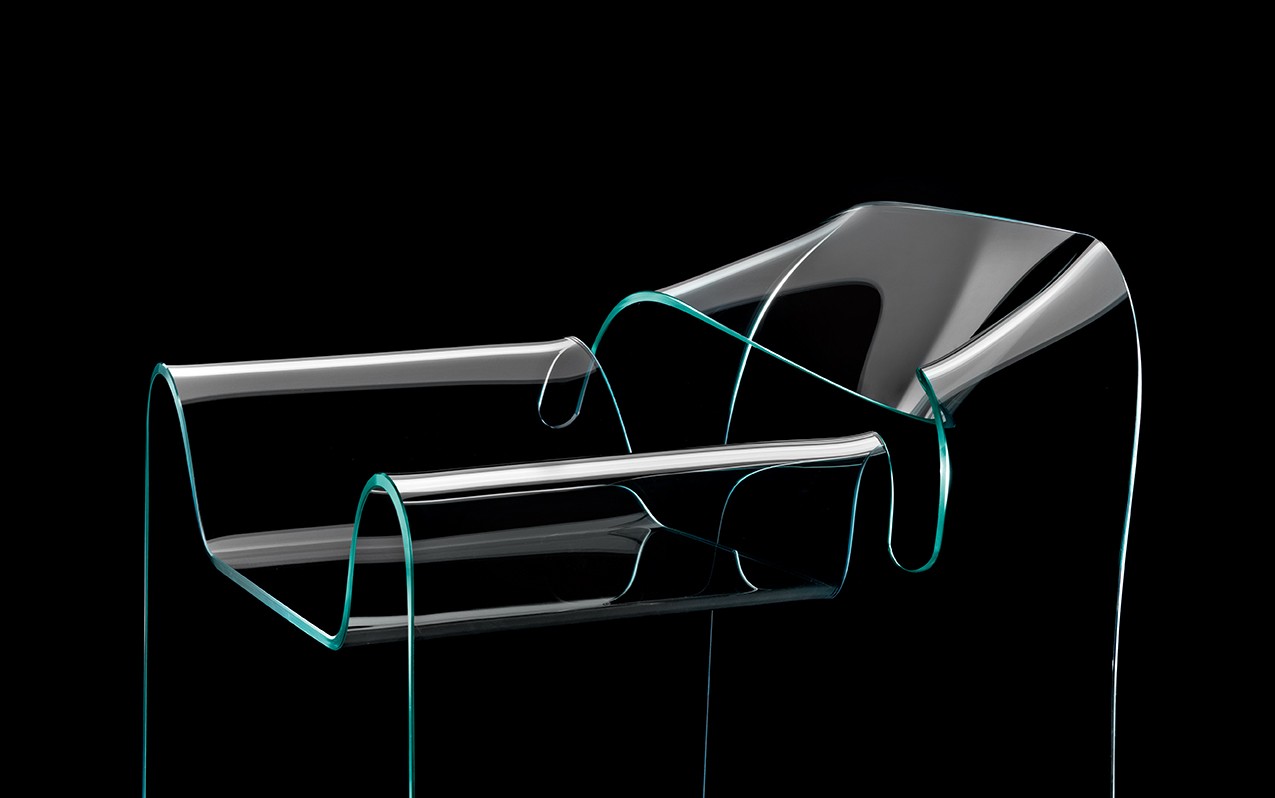
Photo by: Fiam
Amorphous Collection – Shohei Yokoyama
Ο Shohei Yokoyama είναι ένας γνωστός σχεδιαστής από την Ιαπωνία, με σπουδές στη σχολή Craft and Glassmaking στο Osaka University, ο οποίος ερευνά το πώς η φυσική δύναμη που ασκεί ο designer στο μείγμα του φυσητού γυαλιού, αλλά και η συναισθηματική του κατάσταση, επηρεάζουν τη σιλουέτα που λαμβάνει ένα πρωτότυπο και μοναδικό γυάλινο αντικείμενο. Οι εικαστικές του δημιουργίες σχεδιάζονται ενώ ταυτόχρονα παίρνουν υπόσταση, μετά από πραγματικό πειραματισμό με το υλικό όταν αυτό αγγίξει τη θερμοκρασία των 1200 βαθμών Κελσίου και γίνει άμορφο.
Concept by: Shohei Yokoyama
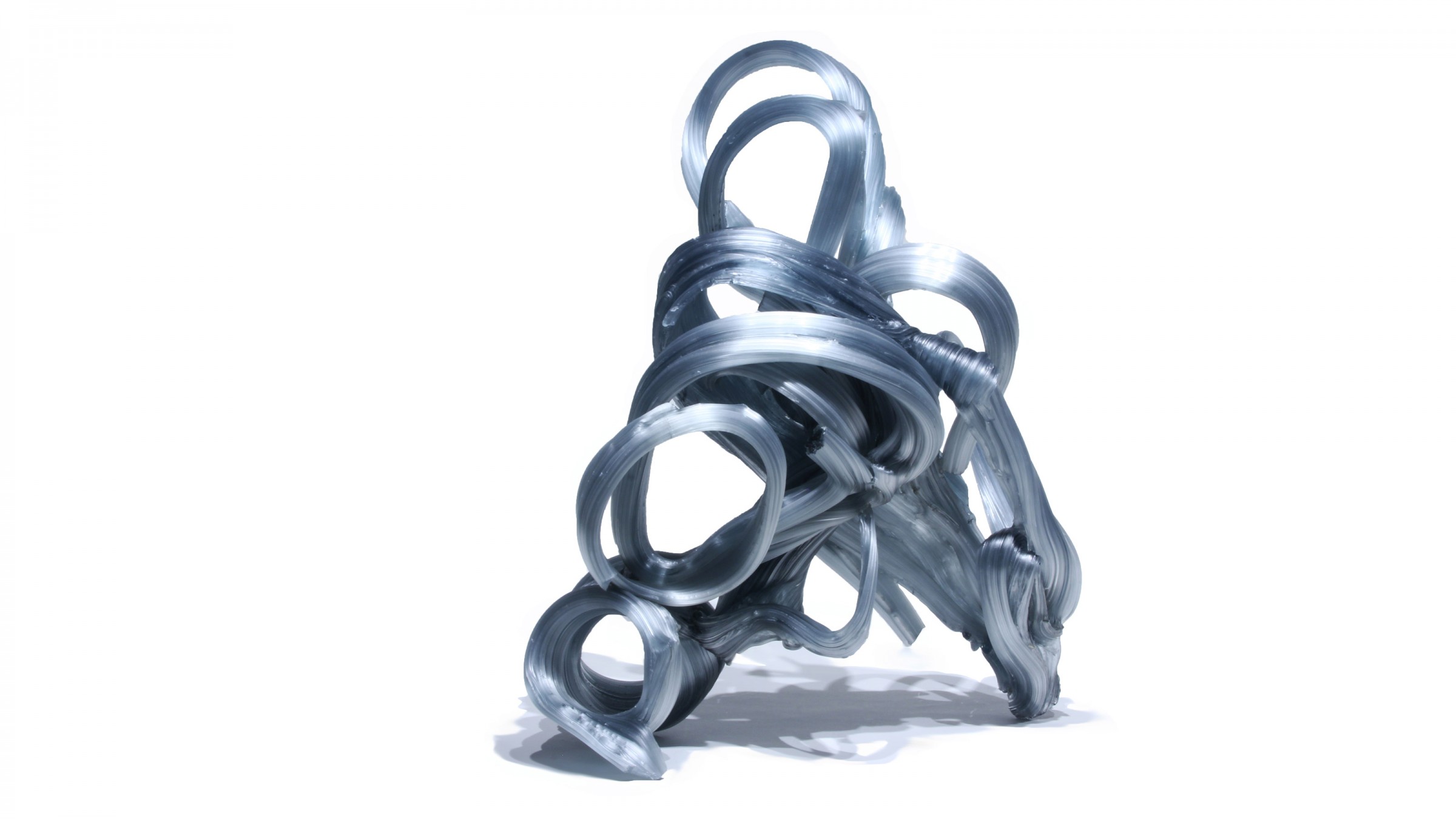
Photo by: Shohei Yokoyama
Melt Chair – Nendo για το Wonderglass
To μοναδικό design της «Melt Chair» αναφέρεται στη βαρύτητα αλλά και την ευελιξία του χυτού γυαλιού. Για να δοθεί αυτή η αίσθηση στο σταθερό και στιβαρό κατά τα άλλα υλικό του γυαλιού, χρησιμοποιείται μια μοναδική τεχνική, σύμφωνα με την οποία στρώσεις καυτού γυαλιού στρώνονται πάνω σε μεταλλικές επιφάνειες, και στη συνέχεια αναρτώνται ώστε να δημιουργηθεί η κρέμαση. Αφού στεγνώσει το γυαλί, μπορεί να δημιουργηθεί αυτή η εικόνα της ανεστραμμένης καμάρας. Έτσι, όλη η σειρά επίπλων «Melt» συνδυάζει επίπεδες και καμπύλες γυάλινες επιφάνειες, αναδεικνύοντας τις ιδιότητες του γυαλιού αλλά και τις δυνατότητες της εξειδικευμένης τεχνοτροπίας.
Concept by: Nendo
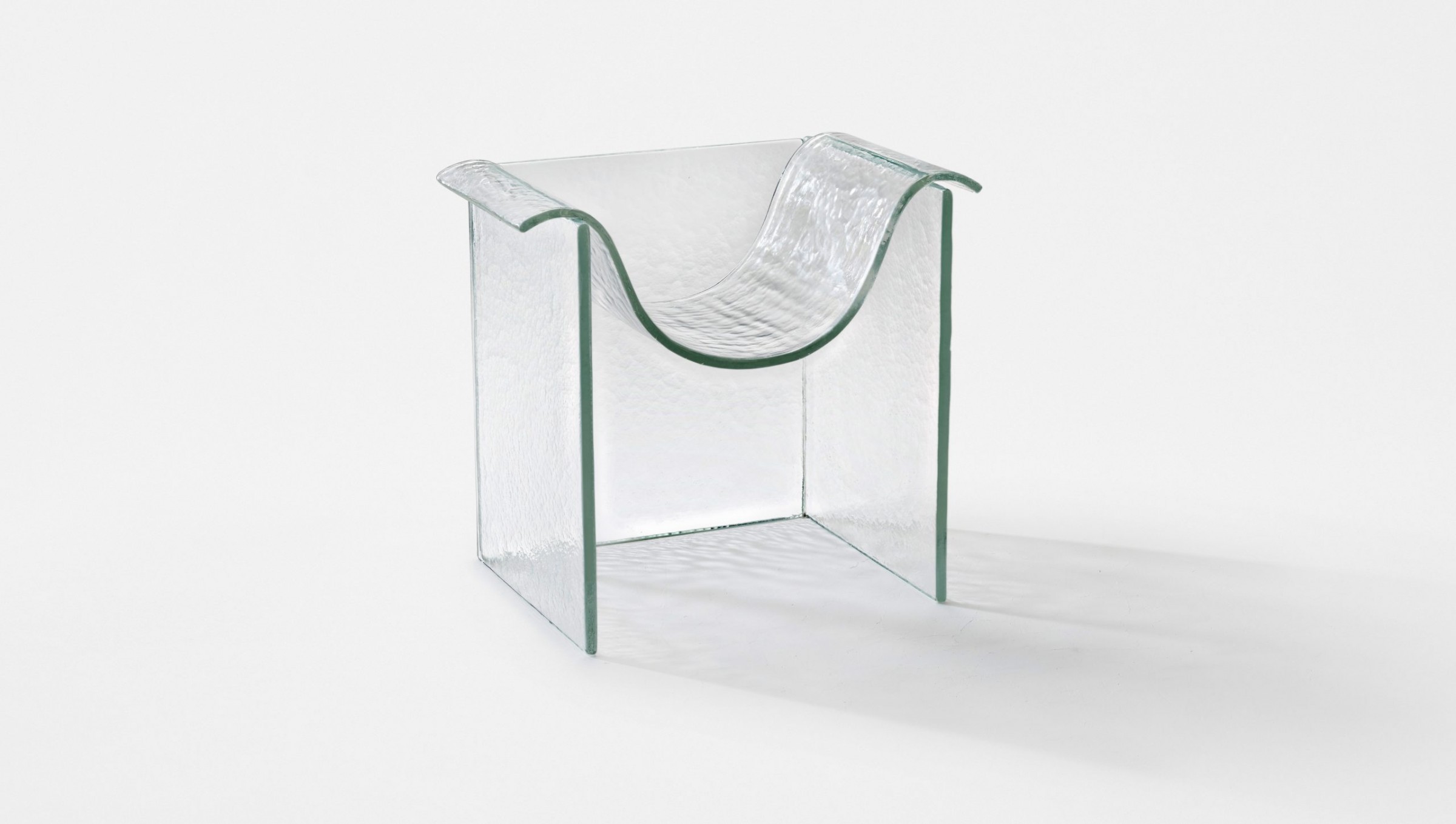 Photo by: Wonderglass
Photo by: Wonderglass
Precarious Collection – Héctor Esrawe, Emiliano Godoy & Brian Thoreen για το Nouvel Studio
Το Vissio είναι μια πλατφόρμα του Nouvel Studio, της εταιρείας που παράγει design με φυσητό γυαλί εδώ και 25 χρόνια, που στοχεύει στη συνεργασία μεταξύ σχεδιαστών, καλλιτεχνών και αρχιτεκτόνων, με στόχο τη δημιουργία περιορισμένων συλλογών που πειραματίζονται με τα υλικά και τα όρια design-τέχνης. Για τη συλλογή «Precarious», οι δημιουργοί Héctor Esrawe, Emiliano Godoy και Brian Thoreen κατάφεραν να ισορροπήσουν (χωρίς πρόσθετες συνδέσεις) γυάλινους στρογγυλεμένους όγκους επάνω σε λεπτά μεταλλικά προφίλ, δίνοντας έντονη την αίσθηση της ροής. Παράλληλα, τονίζεται το πόσο εύθραυστο είναι το γυαλί υψηλής ποιότητας, καθώς αυτό έρχεται σε αντίθεση με την «άγρια» όψη του μετάλλου και τοποθετείται σε μεγάλο ύψος πάνω από το δάπεδο.
Concept by: Héctor Esrawe, Emiliano Godoy, Brian Thoreen
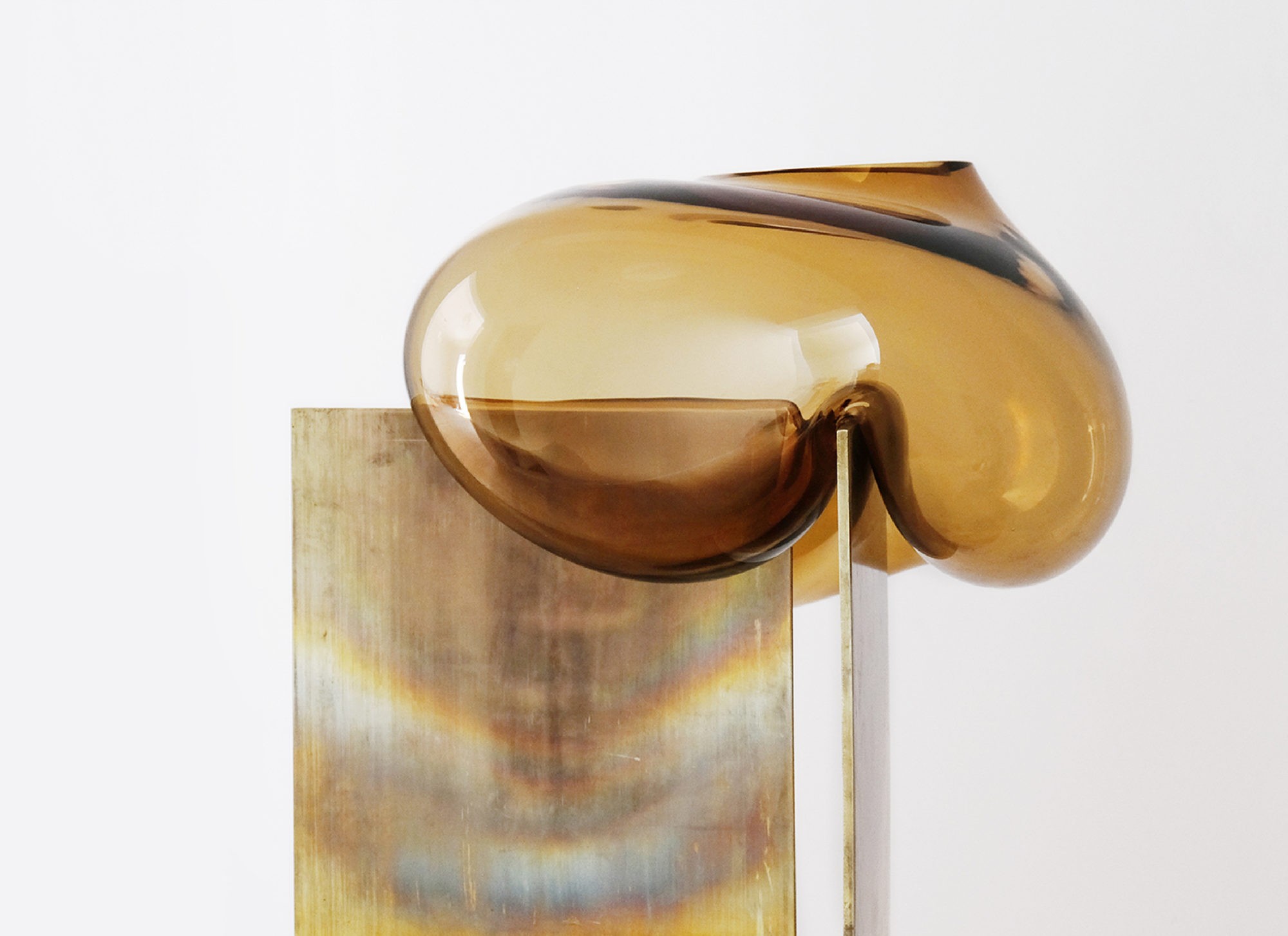
Photo by: Camila Cossio
Roly-Poly Chair / Water – Faye Toogood
Το ιδιαίτερο σχέδιο αυτού του καθίσματος αποτελεί μια αναφορά στη μητρότητα, μιας και το σχήμα τής Roly-Poly Chair «αγκαλιάζει» τον χρήστη μέσω της πληθωρικής γεωμετρίας. Για τις ανάγκες της κατασκευής, καλούπια διαμορφωμένα στο χέρι καλύπτονται από υαλοβάμβακα χωρίς βαφή ή σε ανθρακί και μπεζ χρωματισμούς. Η επιτυχία του σχεδίου αυτού ήταν τέτοια, που η Faye Toogood, κατά το Assemblage 5 στην γκαλερί Friedman Benda στη Νέα Υόρκη, λάνσαρε το ίδιο κάθισμα κατασκευασμένο από μπρούτζο αλλά και κρύσταλλο, υλικό που συμβολίζει το φυσικό στοιχείο του νερού. Η διαφάνεια, εκτός από μια ελαφριά αίσθηση, αποδίδει στο αντικείμενο και ειλικρίνεια, αφού γίνεται εμφανής η σύνδεση του καθίσματος με τα κυλινδρικά πόδια.
Concept by: Toogood
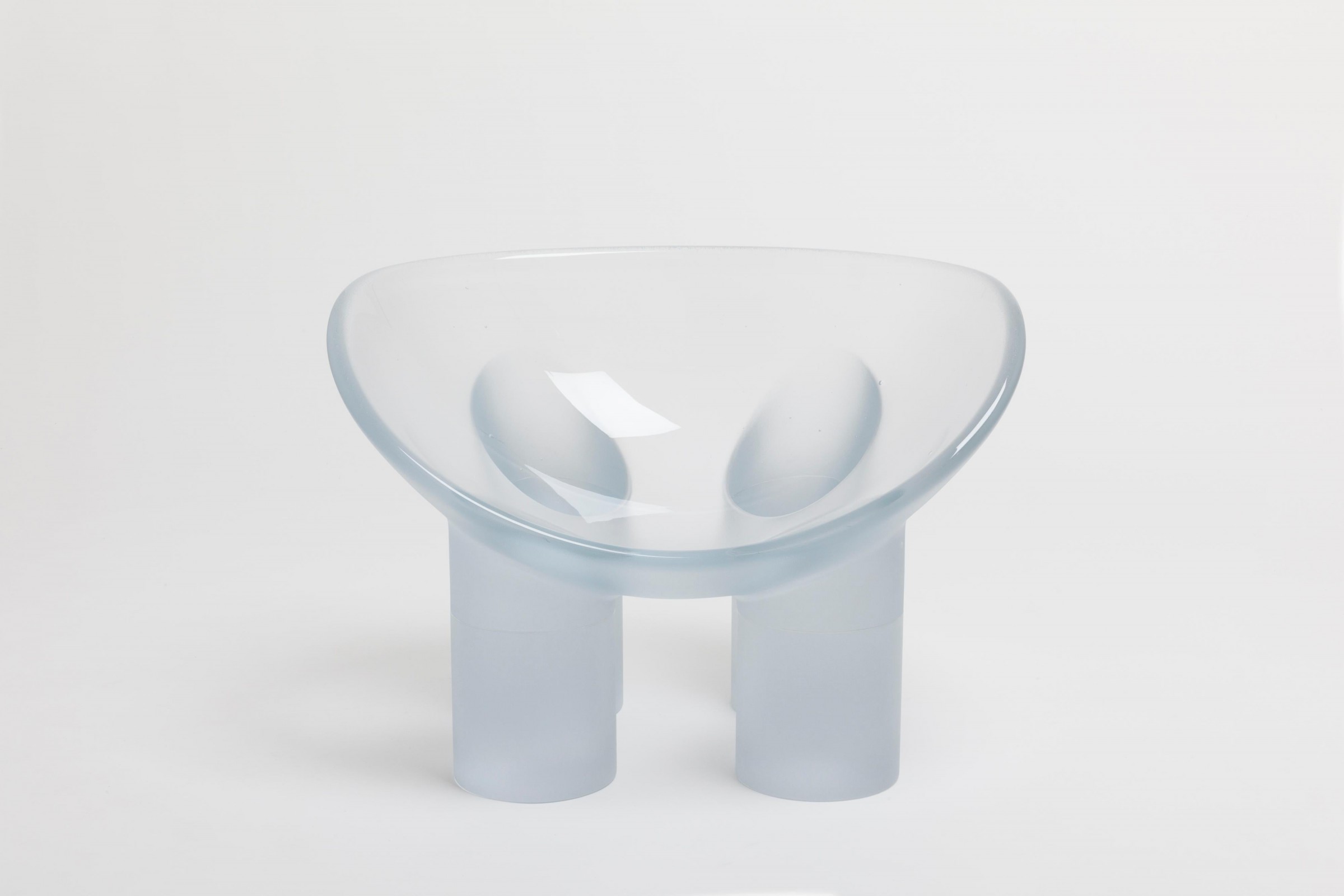




.jpg)
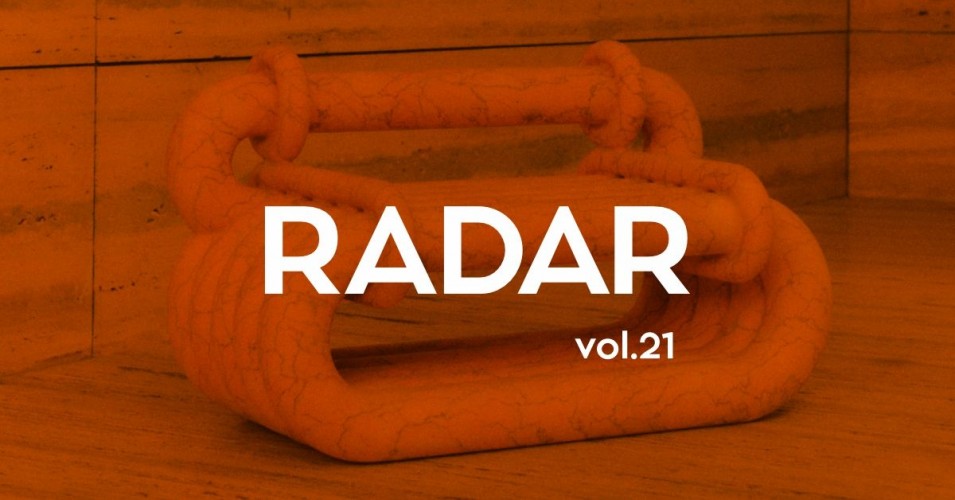
.png)
.png)
.png)